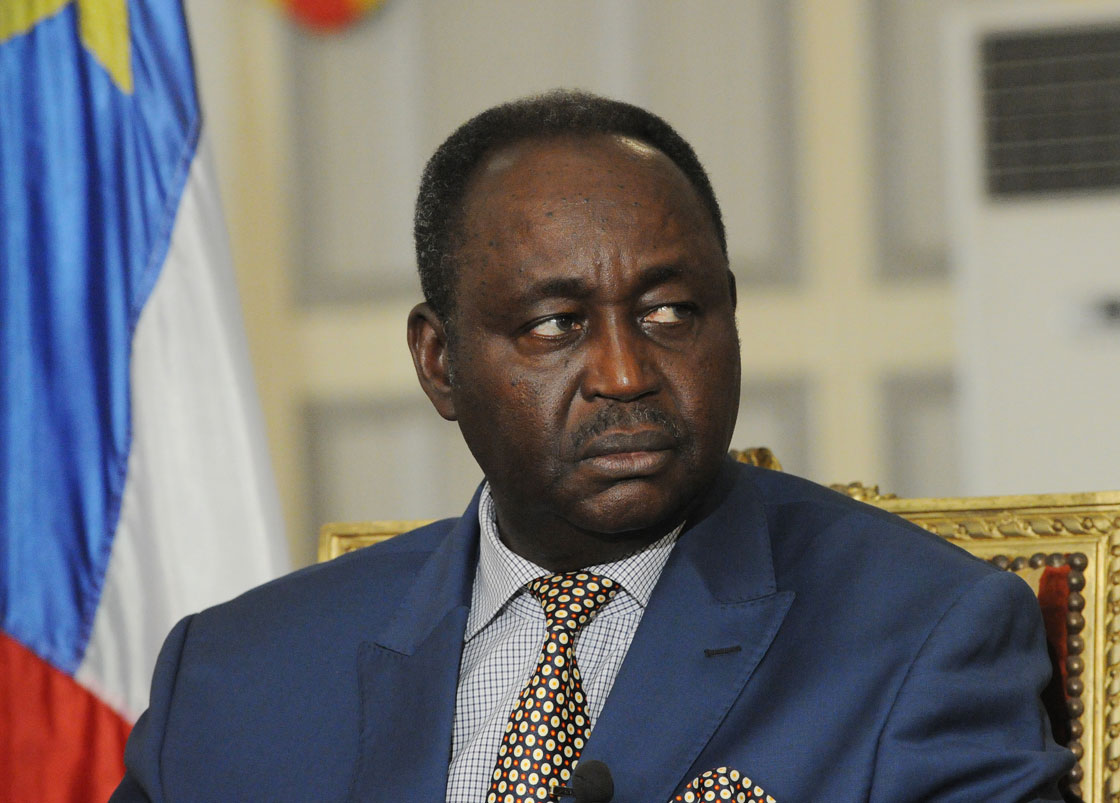BANGUI – Rebels who invaded the capital two months after signing a peace agreement overthrew Central African Republic’s president of a decade on Sunday, as fighters seized the presidential palace and declared him the country’s former leader.

The rebels pushed further into the heart of the city, where they seized the presidential palace, according to witnesses and an adviser to longtime President Francois Bozize. Hours later they could be seen travelling in trucks through the town.
Former colonial power France confirmed the developments, issuing a statement that said French President Francois Hollande “has taken note of the departure of President Francois Bozize.”
“Central African Republic has just opened a new page in its history,” said a communique signed by Justin Kombo Moustapha, secretary-general of the alliance of rebel groups known as Seleka.
“The political committee of the Seleka coalition, made up of Central Africans of all kinds, calls on the population to remain calm and to prepare to welcome the revolutionary forces of Seleka,” it said.
Central African Republic, a nation of 4.5 million that has long been wracked by rebellions and power grabs. The president himself took power in 2003 following a rebellion, and his tenure has been marked by conflict with myriad armed groups.
The rebels reached the outskirts of Bangui late Saturday. Heavy gunfire echoed through the city Sunday as the fighters made their way to the presidential palace, though the country’s leader of a decade was not there at the time.
“Bozize left the city this morning,” said Maximin Olouamat, a member of Bozize’s presidential majority.
- Canada refused to repatriate woman from ISIS camp because she can’t be arrested: internal memo
- Haiti’s PM resigns, paving way for new elections in violence-plagued nation
- U.S. tourist faces 12-year sentence for bringing ammo to Turks and Caicos
- Is Trump immune in the 2020 election case? What to watch for during hearing
The adviser declined to say where the president had gone. The last public news of his whereabouts was Friday, when state radio announced he had returned from a visit to South Africa.
Coverseas Worldwide Assistance, a Swiss-based crisis management firm that has contacts on the ground, said it believed Bozize was headed toward neighbouring Congo.
Bangui is located along the Oubangui River that separates the two countries.
Congolese government spokesman Lambert Mende, however, said he had no knowledge of Bozize crossing into Congo.
Rebels from several armed groups that have long opposed Bozize joined forces in December and began seizing towns across the sparsely populated north of this former French colony. They threatened at the time to march on Bangui, but ultimately halted their advance and agreed to go to peace negotiations in Libreville, the capital of Gabon.
A peace deal was signed Jan. 11 that allowed Bozize to finish his term that expires in 2016, but the rebels soon began accusing the president of failing to fulfil promises made.
They demanded Bozize send home South African forces who were helping bolster the country’s military. They also sought to integrate some 2,000 rebel fighters into Central African Republic’s armed forces.
The deal unraveled more than a week ago, with the rebels again taking control of two towns and threatening to advance on the capital.
Late Saturday, Bangui was plunged into darkness after fighters cut power to much of the city. State radio went dead, and fearful residents cowered in their homes.
An unspecified number of French citizens have taken refuge in the French Embassy, a diplomat said on condition of anonymity because he wasn’t authorized to be publicly named according to Foreign Ministry policy.
A French diplomat said extra French troops were brought in to secure the Bangui airport.
“For us, there is no other solution than the departure of Francois Bozize,” Eric Massi, a rebel spokesman, said from Paris by telephone late Saturday.
Massi said the rebels were securing the city, and he called on residents to remain calm and avoid looting amid the chaos.
South African Brig. Gen. Xolani Mabanga, the country’s military spokesman, said there had been “intense” fighting this weekend between the rebels and South African forces.
“Our base was attacked by the rebels as they were advancing toward the capital,” he said. South African forces suffered casualties from the fighting Saturday night, he said.
“We have suffered some casualties,” he said. He declined to provide the number of casualties, pending the outcome of an investigation.
He said the situation for South African forces was “relatively calm” on Sunday afternoon.
“There are no threats at this moment,” he said.
—
Krista Larson reported from Dakar, Senegal. Associated Press writers Christopher Torchia in Johannesburg and Angela Charlton in Paris contributed to this report.



Comments